Rec Sports
City Youth Starts Business Cleaning Yards | News, Sports, Jobs
Cameron Burgess, 16, a sophomore at Jamestown High School, has started Pawsitive Waste Solutions, a pet yard waste removal service. He currently has 50 customers, 10 of whom are on a recurring basis. The services offered include regular waste removal, one-time cleanups, and special event cleanups. Submitted photo Jamestown High School Sophomore Cameron Burgess, 16, […]
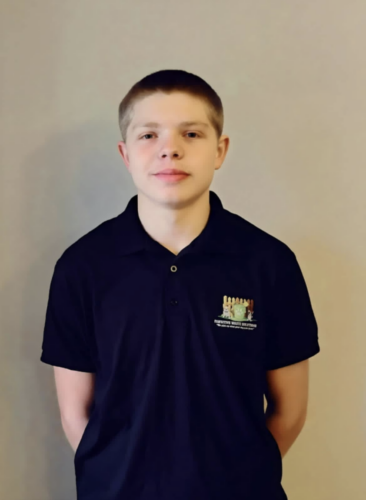
-
Cameron Burgess, 16, a sophomore at Jamestown High School, has started Pawsitive Waste Solutions, a pet yard waste removal service. He currently has 50 customers, 10 of whom are on a recurring basis. The services offered include regular waste removal, one-time cleanups, and special event cleanups.
Submitted photo
-
Jamestown High School Sophomore Cameron Burgess, 16, has started his own Pawsitive Waste Solutions business, where he removes unwanted animal yard waste for a fee.
Submitted photo

Cameron Burgess, 16, a sophomore at Jamestown High School, has started Pawsitive Waste Solutions, a pet yard waste removal service. He currently has 50 customers, 10 of whom are on a recurring basis. The services offered include regular waste removal, one-time cleanups, and special event cleanups.
Submitted photo
When Jamestown High School sophomore Cameron Burgess looks at animal waste in the various backyards he services, he doesn’t see a mess – he sees opportunity.
“For as long as I can remember, he’s worked with his dad at the family side business entitled Mr. Mow It All,” said Cheyenne Burgess, Cameron’s mother.
The business, as the name implies, provides grass-cutting and yard landscaping services.
“This is where Cameron got the idea for his business,” Burgess said. “My husband charges extra for animal waste removal, and Cameron saw a need for this service – to make extra money for himself – and also for people who want the waste removed, but not necessarily the grass-cutting services.”
Since its inception, Cameron’s business, Pawsitive Waste Solutions, has been steadily growing.

Jamestown High School Sophomore Cameron Burgess, 16, has started his own Pawsitive Waste Solutions business, where he removes unwanted animal yard waste for a fee.
Submitted photo
“He’s got a lot of clients,” Burgess said. “I believe he’s got 50 clients, and 10 of them are recurring customers weekly or bi-weekly.”
Despite his busy schedule, Cameron, a 16-year-old student, manages to balance his academic responsibilities , his role in the family business, and his own enterprise, Pawsitive Waste Solutions, along with his passion for track and field.
According to the Facebook page Pawsitive Waste Solutions, the company’s mission is to provide reliable and efficient pet waste removal services to the Jamestown community and surrounding areas, ensuring that both pets and their owners can enjoy a cleaner, happier, and more hygienic environment. For more information email pawsitivewastesolution@gmail.com or visit the Pawsitive Waste Solutions Facebook page.
Rec Sports
Minneapolis group is raising money for more more clay tennis courts
The Park Board will consider applying for Hennepin County youth sports grants to help close the gap this summer. For now, a grassy field remains in place of the demolished asphalt courts as park staff work on designing a bike skills course nearby. “Since I ran for office, I’ve been hearing from everyone how sad […]
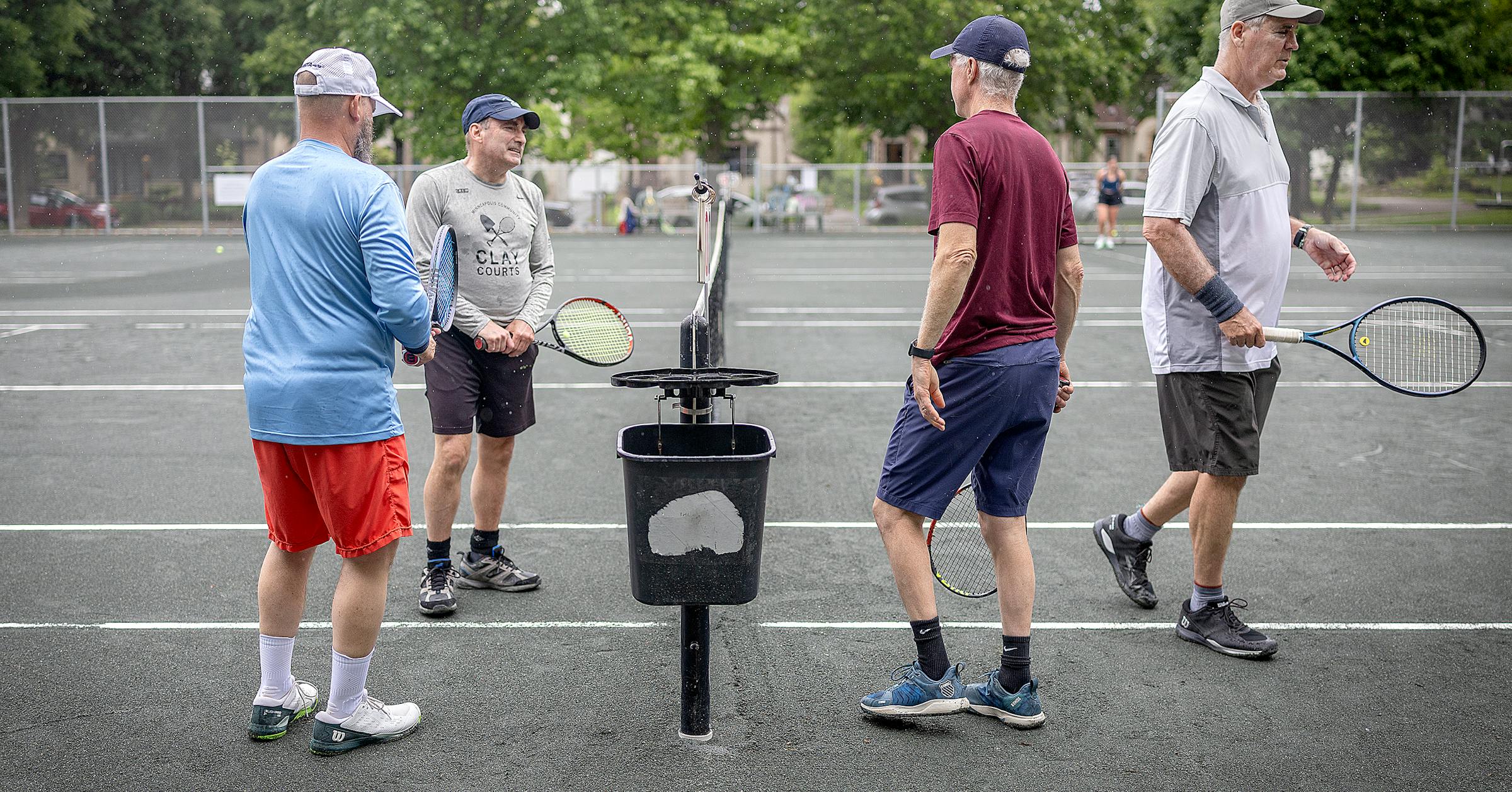
The Park Board will consider applying for Hennepin County youth sports grants to help close the gap this summer.
For now, a grassy field remains in place of the demolished asphalt courts as park staff work on designing a bike skills course nearby.
“Since I ran for office, I’ve been hearing from everyone how sad they are about the condition of the tennis courts on Minnehaha Creek,” said Park Board Commissioner Steffanie Musich at the time that the board advanced its partnership with Minneapolis Community Clay Courts. “So seeing that we’re moving forward with a way to rehabilitate those, since we are unable to utilize our regional park monies for that type of activity, it’s very exciting to see that this is happening.”
Park staff said they are still searching for good locations in north and northeast Minneapolis to spread clay facilities more equitably across the city.
“When I’ve played across the country, you have to get to a private club, or you have to be part of a membership somewhere, to play on a clay court,” said Park Superintendent Al Bangoura. “As a tennis player, being able to walk on a public court free, and have no barriers, is just stunning, and an incredible thing.”
Rec Sports
Life as a high school coach: Demanding parents, stressed-out students
They’re at Bishop Feehan in Attleboro to begin their MIAA certification with the Schmidt-led four-hour “Fundamentals of Coaching.” By the time class is dismissed, the coaches will be fully aware of what amounts to a state of crisis in their profession. Get Starting Point A guide through the most important stories of the morning, delivered […]
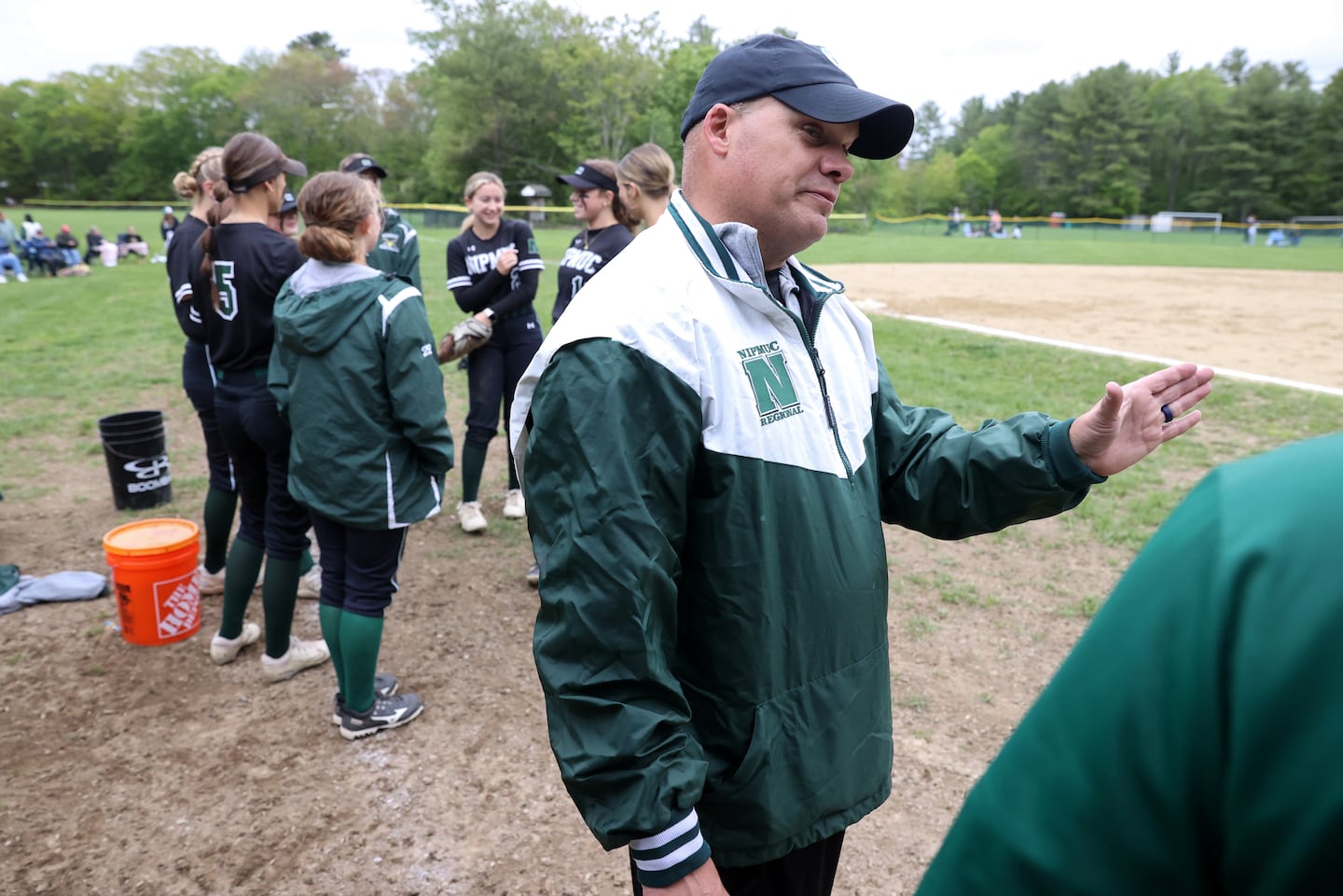
They’re at Bishop Feehan in Attleboro to begin their MIAA certification with the Schmidt-led four-hour “Fundamentals of Coaching.”
By the time class is dismissed, the coaches will be fully aware of what amounts to a state of crisis in their profession.
It’s not the lousy pay, long hours, and myriad logistical issues that are anything new.
It’s this cultural moment, a time when winning has never been more highly prized and the $30 billion business of youth sports, combined with NIL compensation, has never been more transactional.
Raising the degree of difficulty is trying to reach the adolescent brains of a post-COVID student-athlete population that is more stressed, vulnerable, and locked in on social media than ever.
But above all else, it’s the increasingly demanding parents concerned with their child’s playing time or the team’s success that successful longtime coaches agree are the toughest of all the challenges.
Trevor Gagnier, girls’ basketball coach at Apponequet the last 15 years, has learned to lay out the program’s foundation and expectations to parents and players before the season begins.
“If you don’t do that early, that’s how you get screwed,” said Gagnier. “And if someone’s telling you, ‘No, everything’s been perfect for the last 15 years,’ well, tell me where he or she’s coaching, because that doesn’t usually happen.”
Steve Dembowski has been coaching football for 32 years ― at Milton since 2015, and at Swampscott for more than 20 years prior.
When he became a parent of a student-athlete, he realized he needed to engage with parents if he wanted them to be allies rather than foes.
“Something that’s really changed, which I think haunts a lot of coaches, is that communication with athletes and their parents is even more important than ever and a lot of coaches still want to be old school ― ‘I’m not gonna talk about the team or your kid,’ ” said Dembowski. “That’s a mistake now, when you need to be open and honest with families.”

To be demanding and not demeaning with student-athletes while keeping a team striving for excellence is the standard practice for current coaches.
Adding what it takes to corral parents into a positive force and still maintain the passion is beyond exhausting for some.
“I’m an executive leadership coach, right, but some days I feel like a therapist because of the adult coaches that break down on calls with me because of the stress, the pressure, and the embarrassment of some of these situations that come up within the job,” said J.P. Nerbun, a former youth, high school, college, and semi-pro basketball coach who founded TOC Culture Consulting and is the author of “The Coach’s Guide to Sports Parents.”
Nerbun steers some of the coaches to therapy.
He asks all of them to remember why they’re there in the first place.
“The greatest challenge for coaches is to continue to know themselves, to know why they coach, to make sure that they are actually doing the work to become and behave in a way that produces an impact and helps people grow,” he said.
That’s a far cry from the “my way or the highway” coaches who once ruled their roosts.
Those are being weeded out, along with the extreme examples of the bad-apple coaches who grab the wrong kind of headlines for crossing the line from tough to abusive coaching.
More than the X’s and O’s
When the new breed of “Ted Lasso”-like coaches understand their mission as well as the mind-sets of students and parents, the odds of a more positive and stable experience for all three legs of the youth sports stool should increase.
Being an expert on the next best thing in the X’s and O’s of their particular sport is almost an afterthought for coaches these days.
“Even though the game is changing, coaches need to also recognize what is acceptable and what actually works better with the way they’re interacting with their players,” said Jason Sacks, CEO of Positive Coaching Alliance, a national organization that trains and supports coaches. “Sometimes coaches don’t see that connection of, ‘Hey, you know what? Guess what? Kids are different now. And you know what I need to do? I need to evolve as a coach and be able to meet them where they’re at.’ ”
They’re at a place where athletes conditioned to the immediacy of social media want instant results, to know why they’re being coached a particular way, and where they’re not used to direct feedback and criticism.
“High school kids right now are under a tremendous amount of stress. Whether we think they’re ‘soft’ or not doesn’t matter,” said coaching development expert Karen Collins, a former collegiate field hockey and lacrosse athlete and coach and an associate professor at the University of New Hampshire. “If you can build honest and earnest relationships with athletes where you’re transparent and you back up what you say you’re going to do, then that has opened up the window for you to be a ‘tough coach,’ and that’s OK.”
She pointed out that parents want what’s best for their kids. Most do all they can to support their child’s team and coach. It’s a small minority who lose perspective.
When they act out in the belief, for example, that their child needs more playing time, their behavior has an outsized impact on coaches.
National data on retention of school coaches is scarce, but if perception and anecdotes add up to reality, then there aren’t enough of them. Schmidt said flatly, “There is a shortage of highly qualified candidates,” and said lately his applicant pool is “less of the Pacific Ocean, more of the kiddie pool.”
National surveys by the Aspen Institute, of coaches in 2022 and parents of student-athletes in 2024, found that 80 percent of both groups believed there was a shortage of high-caliber coaches.
The percentage of coaches age 55 and older has grown over the last few years, which points to younger coaches leaving the profession.
![Nipmuc AD Chris Schmidt said, “There there is a shortage of highly qualified [coaching] candidates,” and added lately his applicant pool is “less of the Pacific Ocean, more of the kiddie pool.”](https://bostonglobe-prod.cdn.arcpublishing.com/resizer/v2/EE7RB4TRFQ3IQZKVQTSI5EXMIM.jpg?auth=6a3761a99747a0e70fc1ed999ee6306b0ceb56bb6e44822076326aef1f0e9191&width=1440)
And while 80 percent of the coaches surveyed reported feeling satisfied, the percentage was nearly matched by moderately, very, and extremely stressful experiences. As an academic paper published in “Strategies: A Journal for Physical and Sport Educators” pointed out last July, the coaches survey pointed to parents as “key contributors” to that stress. Seventeen percent of school coaches reported that parents often or always criticize their performance, with barely more than half the coaches hearing appreciation.
“We hear about the problem parents all the time and so we exacerbate the problem, but it’s those problems that are running coaches out of the profession, there’s no doubt,” said Collins. “I think if we took a step back and thought about, why are the parents so angry? It’s because it’s this same transactional thing ― they’re worried about the potential for their child.”
‘It’s hard enough to find coaches’
Tim Brillo is in his 15th year as AD at Ludlow and was a longtime coach of the girls’ basketball team.
Like Schmidt, he’s one of the 20-plus certified instructors of the MIAA coaches certification clinic, which began in 1998 and is held 20 to 30 times throughout the year. Coaches hired prior to Aug. 1, 1998, do not have to take the course, and all first serving as a coach after July 1, 2005, must complete it, along with an approved first-aid course.
“In my conversations, coaches were run out by a group of parents simply because their kid wasn’t getting playing time, and recently it was, ‘We need to change the coach because it’s the coach’s fault,’ ” said Brillo. “It’s hard enough to find coaches. Then, when you finally do find somebody that’s willing to do it, there’s these outside pressures and expectations on you from parents.”
Mastering that coach-athlete-parent triangle takes up most of the morning in Attleboro.
There’s also a section devoted to a long list of managerial concerns, such as an emergency care plan, field and dugout conditions, strength and conditioning, rules and regulations, and legal liability.
One breakout group delves into, “Why did you get into coaching?”
Responses ranged from wanting to influence kids in a positive direction, love of the game, and those impacted by wonderful or awful coaches.
“Anyone talk about winning?” Schmidt asked.
No hands.
“Of course we want to be successful, that’s OK, but is that your focus? If your answer is yes, that’s a problem,” said Schmidt.
When the class ended, Corey Flynn, Winchester’s assistant ultimate Frisbee coach, said he thought the course hit all the right notes.
Flynn hadn’t always appreciated the magnitude of a coach’s job.
“We have about 60 players who are attached to like 100-plus family members, and then with various school administrators involved, you rapidly become the center of about 200 people that have very direct contact with you on a regular basis,” said Flynn. “That’s probably the thing that I was shocked by. I was like, ‘Oh, this will be great. I’m going to show up, I’m going to coach kids,’ and I didn’t understand it’s going to be a much bigger responsibility than that.”
The responsibilities can feel daunting, said Flynn.
Luckily, he has a solid foundation in order to not be overwhelmed.
“Most coaches are lying if they don’t have days like, ‘This train has left the station and I’m on it and I can’t get off,’ but the good news is that generally kids are awesome,” he said. “You do it because it fulfills you and it helps amplify other people and all that stuff. That’s so worth it.
“And most days you feel that side of it.”
Share your thoughts on the state of high school coaching in the comments.
Michael Silverman can be reached at michael.silverman@globe.com.
Rec Sports
Hoop dreams: FLY & STY basketball tournament returns to Columbus
COLUMBUS – Eighty youth basketball teams from around the Southeast will converge on Columbus this weekend for the second FLY & STY Hustle basketball tournament. The event features around 10 area teams, representing Columbus, Noxubee County, Starkville and West Lowndes, as well as those from Louisiana and Tennessee, ranging in age from third-12th grade. Games […]

COLUMBUS – Eighty youth basketball teams from around the Southeast will converge on Columbus this weekend for the second FLY & STY Hustle basketball tournament.
The event features around 10 area teams, representing Columbus, Noxubee County, Starkville and West Lowndes, as well as those from Louisiana and Tennessee, ranging in age from third-12th grade. Games are scheduled for both courts at MUW’s Pohl Gymnasium as well as the main gym, auxiliary gym and middle school gyms in New Hope and the middle and high school gyms in Caledonia.
Tournament co-organizer Shelly McElveen, who runs the FLY Girls basketball club, said this tournament, while important for those with dreams of playing at an NCAA level, is focused on more than just exposure for players.
“This is a great opportunity for Columbus and all surrounding areas,” McElveen said. “We’re looking at an influx of 3,500 people, and that (benefits) restaurants, hotels, just the economy itself. If anybody would like to come out and support, this is a major event and it’s only getting bigger.”
The tournament’s other organizer, Donel Briggs, who runs the Saving the Youth (STY) basketball program, said that while he believes travel – and, more importantly, exposure to other places – is key to helping young men develop, the benefits of having a local showcase are many. According to Briggs, Saving The Youth uses basketball as a tool to teach life skills and to benefit the community.
“It means a lot. I was always taught to raise the bar,” Briggs said. “And part of raising the bar means trying to show the city that we’re bringing in revenue to the city. We’ve been asking for a while for the city to come along with us on a multi-sport gym … which, in return, will make the city boom.”
McElveen’s FLY Girls organization, which was established in 2019, provides advanced coaching and participation opportunities for the girls involved, but it also provides opportunities for young players to make an impact in their community. McElveen said in the past year alone, FLY Girls served meals to the unhoused at both Thanksgiving and Christmas, and provided tutoring and ACT preparation services for FLY Girls participants.
McElveen said the tournament is a great way for basketball fans to come together and enjoy two days of high-caliber competition, but that its impact reaches well beyond the court.
“Basketball is bigger than just basketball,” McElveen said. “Basketball opens doors and provides opportunities with various networks that are unreachable in other ways. It provides connections, lifelong friendships and other adventures outside of basketball and even a possible opportunity for a free education. Whether it’s junior college, NAIA or Division I, basketball provides opportunities and it also allows our girls an outlet outside of school, outside of their daily routine, to build bonds and friendships that last a lifetime.”
Briggs echoed those thoughts in an interview with The Dispatch.
“Our organization is so much bigger than basketball,” Briggs said. “Basketball is just a strategy. Our mindset at STY is to help these young men survive.”
The tournament tips off at 6 p.m. Friday at New Hope High School with a meet and greet and two showcase games. Tournament play begins in earnest at 8 a.m. Saturday with doors opening at 7:30 a.m. at both the MUW and New Hope tournament sites. Single-day tickets are $20 while two-day passes are $35 and can be purchased at the door or online at https://basketball.exposureevents.com/229140/hustle-tournament.
Philip Poe is sports editor.
Quality, in-depth journalism is essential to a healthy community. The Dispatch brings you the most complete reporting and insightful commentary in the Golden Triangle, but we need your help to continue our efforts. In the past week, our reporters have posted 32 articles to cdispatch.com. Please consider subscribing to our website for only $2.30 per week to help support local journalism and our community.
Rec Sports
Bruce Colon, Influential Coach and Ski Racing Community Leader, Dies at 84
Bruce P. Colon, age 84, of Lake Placid, N.Y., passed away on May 24, 2025. Bruce was born in Athol, Mass., to Katherine P. and Percy “Bill” Colon on Aug. 17, 1940, as the youngest of three children. After graduating from Athol High School in 1958, Bruce attended Paul Smith’s College, where he was a […]

Bruce P. Colon, age 84, of Lake Placid, N.Y., passed away on May 24, 2025.
Bruce was born in Athol, Mass., to Katherine P. and Percy “Bill” Colon on Aug. 17, 1940, as the youngest of three children. After graduating from Athol High School in 1958, Bruce attended Paul Smith’s College, where he was a vital member of the ski team and graduated with an associate degree in forestry in 1960. He served in the U.S. Army from 1962 to 1964 and then earned his Bachelor of Science degree from the University of New Hampshire in 1967.
Bruce returned to the Adirondacks in 1967 to teach and coach football, golf, and alpine skiing at Saranac Lake High School. From 1968 to 1977, he held the position of assistant headmaster at Northwood School in Lake Placid, N.Y., where he led the history department and coached baseball, golf, football, and alpine skiing. By his second year at Northwood, he had led the football team to an undefeated season, and two members of his ski team were selected for the U.S. National Junior Team. He also played a key role in transitioning Northwood School to a co-educational institution and establishing its women’s sports programs.
Bruce was an influential volunteer, championing Lake Placid community youth sports as a Little League baseball coach, area golf instructor, and Lake Placid Sports Council member. In 1977, he was appointed women’s alpine director for the 1980 Olympic Winter Games.
One of Bruce’s lasting legacies is as a founder of the New York Ski Educational Foundation (NYSEF). Since its inception in 1973, the Whiteface Alpine Training Center—later renamed NYSEF—has become a nationally recognized program that has trained thousands of youth in alpine, Nordic, freestyle, and snowboard disciplines over more than 50 years. In 2018, Bruce was an inaugural inductee into the NYSEF Hall of Fame.
Following his tenure at Northwood School, Bruce became the founding headmaster of Carrabassett Valley Academy in Maine and later headed alpine ski programs at Mt. Bachelor, Ore.; Mt. Alyeska, Alaska; and Aspen, Snowmass, and Crested Butte, Colo. Dozens of Coach Colon’s athletes went on to compete or coach at national, international, and Olympic levels. In 2003, he was honored with U.S. Ski & Snowboard’s Chairman’s Special Recognition “Tom Reynolds Award for Lifetime Achievement in Coaching.”
Upon retirement, Bruce returned to Lake Placid, where he pursued his passion for golf, perfected his craft of custom bamboo fly rod building, and relished spending time with his children and grandchildren.
Bruce is survived by his four children: Laurie (Johnny) Woods of Fort Lauderdale, Fla.; Clarke (Elizabeth) Colon of Waterbury, Vt.; Lisa (Shawn) Holes of Boise, Idaho; and Eric Colon of Silt, Colo.; eight grandchildren: Eliza (Kent) True, William Holes, Logan Holes, Mazie Holes, Heath Colon, Davis Colon, Levi Colon, and Claire Colon; and four great-grandchildren. He is also survived by his friend and former wife, Nancy Colon of Lake Placid, and his girlfriend of 20 years, Carol Nevulis of Lake Placid. He leaves behind numerous nieces and nephews and countless former students and athletes whose lives he positively impacted.
His parents, his brother Frazier P. Colon, and his sister Joan E. Duncan preceded him in death.
A celebration of life will take place later this summer. In lieu of flowers, donations may be made to NYSEF, P.O. Box 300, Wilmington, NY 12997 or nysef.org.
M.B. Clark Inc. Funeral Home in Lake Placid is handling arrangements. To share a memory or leave condolences, please visit www.mbclarkfuneralhome.com.
A memorial tree was planted in Bruce’s honor.
We are deeply sorry for your loss — the staff at M.B. Clark Inc. Funeral Home – Lake Placid.
Join in honoring his life: Plant a memorial tree.
Rec Sports
Pensacola City Council Greenlights Transformative Rafferty Center in 6-1 Vote
Pensacola City Council Greenlights Transformative Rafferty Center in 6-1 Vote Pensacola City Council Greenlights Transformative Rafferty Center in 6-1 Vote PR Newswire PENSACOLA, Fla., May 29, 2025 PENSACOLA, Fla., May 29, 2025 /PRNewswire/ — In a 6–1 vote, the Pensacola City Council has approved the construction of The Rafferty Center, a $3 million youth facility spearheaded […]

Pensacola City Council Greenlights Transformative Rafferty Center in 6-1 Vote
Pensacola City Council Greenlights Transformative Rafferty Center in 6-1 Vote
PR Newswire
PENSACOLA, Fla., May 29, 2025
PENSACOLA, Fla., May 29, 2025 /PRNewswire/ — In a 6–1 vote, the Pensacola City Council has approved the construction of The Rafferty Center, a $3 million youth facility spearheaded by the Southern Youth Sports Association (SYSA).

The center is named for Troy and Ashley Rafferty, whose foundational leadership gift of $1 million launched the capital campaign. Their commitment has been supported by additional contributions from the Florida Legislature and other local philanthropists. The center will be built at Legion Field and feature two basketball courts, classrooms, and expanded space for tutoring, mentoring, and after-school programs.
The facility honors decades of grassroots work by SYSA, which began in the 1980s and now serves over 1,000 children annually. The new space will double capacity and allow coaches and mentors to build deeper relationships with youth.
“Our goal is for The Rafferty Center to play a critically important role in the life of our city. Our family has long been deeply committed to do anything we can do to help make the future of kids in Pensacola a brighter one,” said Troy Rafferty, a shareholder at the law firm Rafferty Domnick Cunningham & Yaffa.
City Council Member Delarian Wiggins added, “Youth sports are more than just games—they’re the heartbeat of a community, where kids grow, families unite, and lifelong values are born on fields and courts shared by all.”
The City of Pensacola will provide land, maintenance support, janitorial services, and utilities, recognizing the long-term community value.
Construction is expected to begin later this year.
For more information or to support the project, visit https://www.sysatigers.org/custom_pages/137780/rafferty-center
Press Contact:
Natasha Diemer
Chief Strategy Officer (CSO)
Rafferty Domnick Cunningham & Yaffa
Phone: (561) 516-5168
Email: Natasha@pbglaw.com
Agency Contact:
Bridget Mercuri
Media Strategist
AMPLIFY
Phone: (908) 612-3515
Email: bridget@amplifyforlawyers.com
About Rafferty Domnick Cunningham & Yaffa
Rafferty Domnick Cunningham & Yaffa is a plaintiffs’ litigation firm with a national practice specializing in catastrophic injury and mass torts law. With a team of experienced attorneys dedicated to fighting for the rights of those injured through negligence or wrongdoing, Rafferty Domnick Cunningham & Yaffa has earned a reputation for delivering justice and securing substantial settlements for their clients.

SOURCE Rafferty Domnick Cunningham & Yaffa

Rec Sports
Reilly Banners Class of 2025 announced | News, Sports, Jobs
Salem Preservation’s Historic Reilly Banner committee has announced its Class of 2025. From left, individuals who nominated those featured on the banners, John Gilbert (holding for Melissa Engle), David K. Schwartz, Mike Eckstein, Joe Barbus (holding for Mary Lou and Gary Hartzell), Susan Greene Pritchard, Sue Mehno and Sue Bricker Kyser. (Submitted photo) SALEM — […]
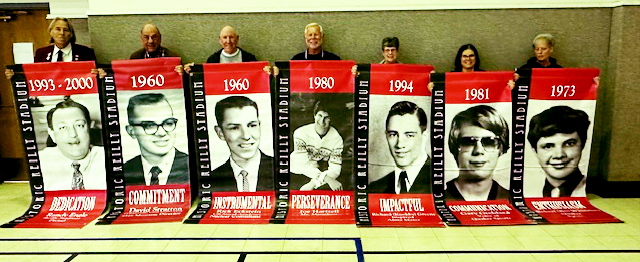

Salem Preservation’s Historic Reilly Banner committee has announced its Class of 2025. From left, individuals who nominated those featured on the banners, John Gilbert (holding for Melissa Engle), David K. Schwartz, Mike Eckstein, Joe Barbus (holding for Mary Lou and Gary Hartzell), Susan Greene Pritchard, Sue Mehno and Sue Bricker Kyser. (Submitted photo)
SALEM — Salem Preservation’s Historic Reilly Banner committee has announced its Class of 2025. The publicly nominated honorees are nominated by a wide range of Salem Quaker fans from all over the United States of America. The nominees over the past decade represent a cross-section of people whose lives have been affected by their involvement with “Quakerdom” at Reilly Stadium.
All Reilly honorees are nominated by friends and relatives for one simple reason. Their lives in some manner, have been touched, changed or impacted by their involvement with Historic Reilly Stadium. Nominees do not have to have actively participated in sports at the former Reilly Stadium. Something they did or that happened to them at the stadium have changed or had a lasting impact on their life. Reilly banner honorees have come from all walks of life.
Their lives have had an effect not only in Salem, Ohio, but in the far reaches of the world from Bangladesh, Russia, Saudi Arabia, China and of course throughout the U.S.A.
Salem Preservation presents, in no particular order, the historic Reilly Banner Class of 2025.
Joseph Hartzell (1980): “Mr. Marathon” persevered through a near tragic auto accident to run in the Boston Marathon.
Rick Eckstein (1960): Multi-talented instrumentalist, nuclear submarine commander and nuclear consultant.
Randy Engle (1993-2000): Salem City Schools superintendent who took great pride in “showing off,” maintaining and upgrading Reilly Stadium for all of Salem’s residents.
Robert (Bo) Whinnery (1973): Navy submariner, youth sports coach, Joe Kelly Spirit award winner, voice of Salem football.
Gary Goddard (1981): Educator, communicator, mentor. Announcer for SHS basketball, baseball, volleyball and football.
Richard (Knobby) Greene (1944): Impactful on the football field and in the banking industry. Inspired his wife Barbara Butler Greene to write Salem’s alma mater.
David Stratton (1960): Quietly committed to the Salem community. Educator, coach, counselor. Gave 110% to the extraordinary number of projects he took on in school, church or throughout our community.
-
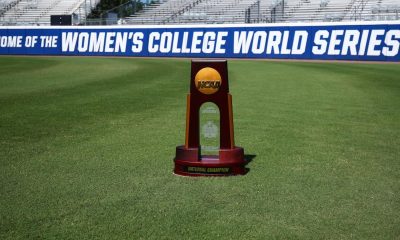
 Sports3 weeks ago
Sports3 weeks ago2025 NCAA softball bracket: Women’s College World Series scores, schedule
-

 College Sports1 week ago
College Sports1 week agoPortal Update – Basketball and Gymnastics Take Hits
-

 Rec Sports2 weeks ago
Rec Sports2 weeks agoThe Program, a New Basketball Training Facility, Opening in Greenpoint This September
-

 College Sports3 weeks ago
College Sports3 weeks agoNew restaurant to open in State College | Lifestyle
-
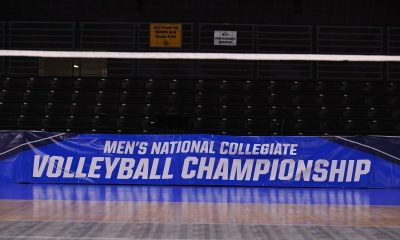
 Sports3 weeks ago
Sports3 weeks ago2025 NCAA men’s volleyball championship: Bracket, schedule, scores
-

 Sports3 weeks ago
Sports3 weeks agoBoys volleyball: Millers sweep Lawrence North
-

 Sports3 weeks ago
Sports3 weeks agoMajor League Baseball results
-
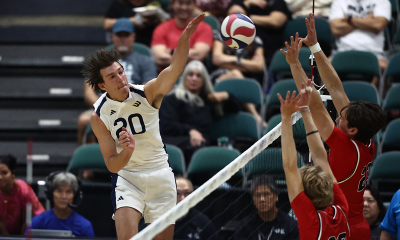
 Sports3 weeks ago
Sports3 weeks agoHilir Henno of UC Irvine Receives AVCA Distinction of Excellence Award
-

 Sports3 weeks ago
Sports3 weeks agoWork out, don't run out
-
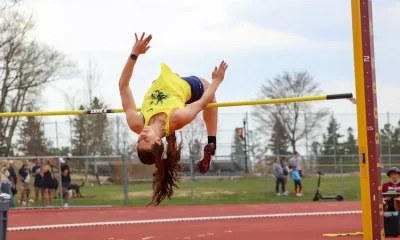
 Sports3 weeks ago
Sports3 weeks agoGreenwaldt and Sallee Take NSIC Titles in Day Two



































